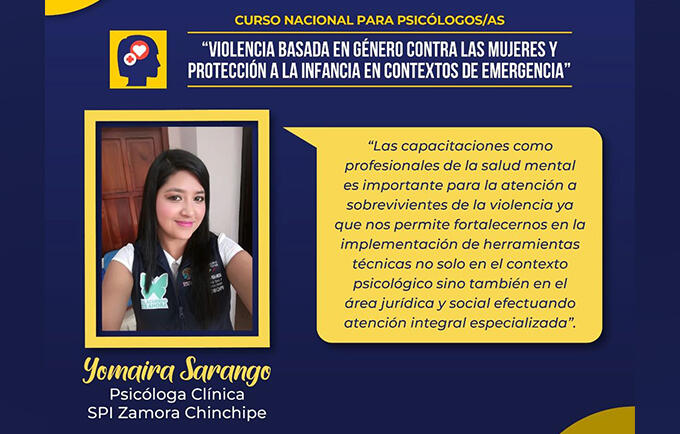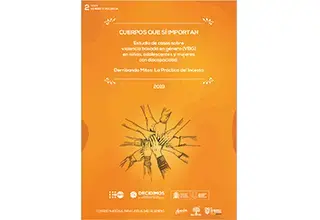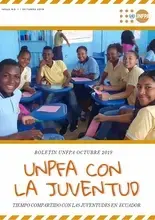The restrictions adopted to prevent COVID-19 infections have put the lives and integrity of hundreds of women in Ecuador, who live with their aggressors, at risk. According to the National Council for Gender Equality (CNIG), in emergency contexts, gender-based violence against women, “particularly domestic violence” tends to increase because of conflicts at home, and thid health emergency has not been the exception. To improve care for women who are victims of violence and their children, the Ministry for Human Rights along with the Universidad Técnica Indoamérica, the United Nations Population Fund (UNFPA), the United Nations Children's Fund (UNICEF), UN Women and SART proyect of the European Union, developed the course “Gender-based violence against women and protection of children in emergency contexts”.
Cecilia Chacón, Secretary of Human Rights, says that this health emergency imposed new challenges because many of the women who used their services were in confinement and could not ask for help as they did before. “Before the pandemic, people used to take a taxi or a bus, or come in a neighbor’s car, but with the pandemic this was no longer possible”, so there was a need to adapt their services. Chacón affirms that the main objective of the course was to strengthen the capacities of their staff so that they provide better care to victims of gender violence in emergency contexts such as this pandemic. However, she is confident that the new skills learned can be applied always.
Chacón says that the course also contributed to the creation of an increasingly comprehensive care system that both ensures quality of care without revictimizing women and protects all children in vulnerable situations. Lola Valladares, Officer for Gender, Culture and Human Rights at UNFPA Ecuador, assures that the implementation of the course is part of the role played by the United Nations agencies around the world. That is, to leave certain capacities installed in the countries, to “for example in this case, address GBV issues, and address them properly within the framework of national and international guidelines to place victims and survivors of violence at the center of their actions".
Jacqueline Peñaherrera Melo, director of Postgraduate Studies at Universidad Indoamérica and academic director of the course, says that the course was aimed at three groups of professionals: lawyers, social workers, and psychologists. Peñaherrera assures that the course “was unprecedented because everything was tailor-made.” The contents, she explains, were different for each group and were reviewed several times by technical and academic tables made up of experts from the Ministry for Human Rights, UNFPA, UNICEF, UN Women, and the university, until they were aligned with the course objectives.
The course was 60 hours long and helped 200 professionals who work in 45 points nationwide. Juliana Cueva, a clinical psychologist who works at the 7th Zone— El Oro, Loja and Zamora Chinchipe —was one of the participants, and she says that for her, the course was very important. “We have always worked in person, we are always with the victim, but with the pandemic it hasn’t been possible.” Cueva assures that due to these limitations, it was important to learn what to do in these cases, to address them in a comprehensive manner. The 29-year-old clinical psychologist says it was also valuable that there were trainers from the public sector, the private sector, and the UN agencies because they showed them how to respond to different cases from their own experiences. For example, if a case of psychological violence is identified, Juliana now knows how to apply, virtually, the emotional containment techniques that she applied in person without losing the quality of her care.
The course was relevant for the lawyers, psychologists and social workers who work at the Ministry and the shelters for women, so they can specialize in how to manage cases of gender violence in emergency contexts, how to make a good intervention in crisis, and how to carry out good self-care techniques. However, Cecilia Chacón emphasizes that one of the most important lessons this course left was being able to assess how significant the work of the Ministry for Human Rights, the shelters and the centers for the protection of rights for all women and children is. They are in a vulnerable situation in Ecuador.





